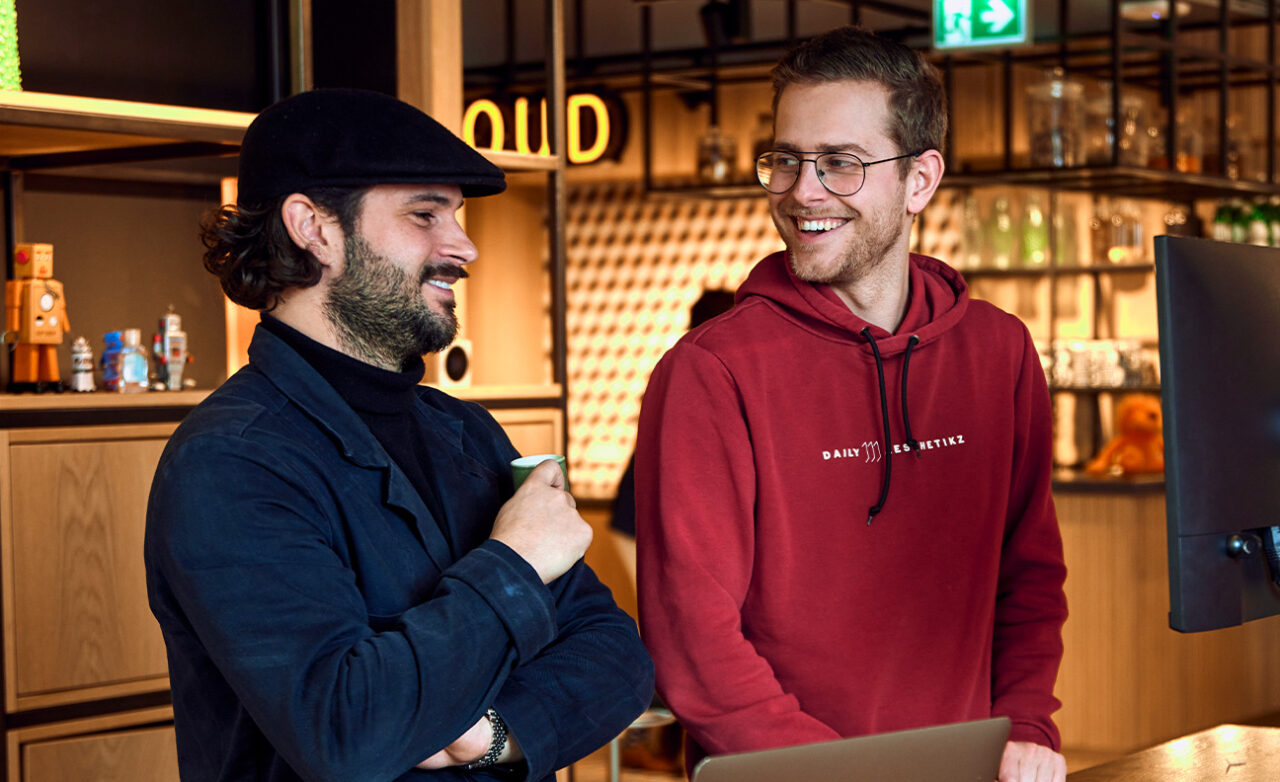The 4 different generations in the office
From baby boomers to Gen Z: for the first time, the workplace is home to four generations simultaneously. Each with their own opinions and personal preferences. This is something that can lead to clashes. Some older individuals may find the younger ones too sensitive, and newcomers may not simply accept the status quo anymore. To understand all this, let's bring it back to the basics: who are these generations? How do they navigate the workplace? And what challenges do they face?
Different generations with different perspectives
Each generation has its preferences regarding communication, management styles, work ethics, office layouts, and career plans. These preferences sometimes deviate from what is currently considered the standard. A standard that was created decades ago by the baby boomer generation and still stands as the ‘norm’ today! Meanwhile, the baby boomer generation is slowly fading from the workforce, making way for its successors: Gen X, Millennials, and Gen Z.* In order to create a work environment where every generation feels at home, it’s important to understand the characteristics of these generations and how these are shown in the workplace.
*Linsay Polak – ‘The Remix – How to Lead and Succeed in the Multigenerational Workplace’

Gen X
Characteristics
Common sense, independence, relativism, and individualism.
Background
The baby boomers are succeeded by Generation X. Also known as the “the Lost Generation”, they were born between 1965 and 1980. They were the first generation to truly be free from religious and traditional constraints by their parents.
This generation grew up during a time when the economy wasn’t doing well, especially when compared to their predecessors. They faced a high youth unemployment rate due to economic contraction. Graduates at that time could not immediately find a job. Because of this crisis, as well as the Cold War, they tend to be much more sceptical than other generations.
In the workplace
Gen X employees often possess a self-reliant, no-nonsense mentality and a strong sense of responsibility. They tackle work with a problem-solving mindset and with great perseverance. It’s the generation that started working more efficiently and sought a better work-life balance. For instance, they introduced shorter meetings and worked fewer extremely long days than their parents. Even with this increased work-life balance, Gen X is loyal to their employers.
Despite growing up in a world without the internet and developing digital skills later in life, Gen-X has been proven capable of embracing and mastering digital tools. They now actively use Slack and Trello, and are generally tech-savvy. However, email will always be their favourite digital communication method.
Millennials (Generation Y)
Characteristics
Individualism, optimism, flexibility, and continuous learning.
Background
Born between 1980 and 1997 and currently the largest group in the job market, Millennials witnessed the birth and evolution of social media, smartphones, and the internet. They’re completely accustomed to the digital world, where information is available and accessible at all times. However, this abundance of data also leads to overstimulation and indecision. Personal happiness and self-improvement are important factors for Millenials. This is also the first generation to talk about their mental health openly.
However, this generation has also faced crises. Most Millennials graduated during or shortly after the 2008 financial crisis. During this time, it wasn’t easy for them to find a job at their education level or one in line with their field of study.
In the workplace
Millennials value success and are willing to put in the overtime necessary to achieve it. However, they aren’t particularly known for their loyalty. They’re curious and always looking for new challenges. If an exciting opportunity pops up elsewhere, they’re easily inclined to switch jobs! But if their job stays challenging and aligns with their passions, they are highly engaged employees.
While previous generations prefer face-to-face and, when necessary, phone communication, Millennials opt for online communication: this includes chat, email, and social media. With each new generation, hierarchy continues to fade: Millenials prefer a flat organisational structure with short lines of communication.
Gen Z
Characteristics
Digital, sincere, stable and open-minded.
Background
Born between 1997 and 2012, Gen Z entered the job market as newcomers a few years ago. They’re the first generation to have grown up entirely online. They didn’t hang posters above their beds but followed their idols on social media instead.
Thanks to the online world, it seemed like the possibilities were endless. Still, in their youth, they also witnessed the world falling apart, from the climate crisis to terrorist threats and the aftermath of an economic crisis. As a result, stability is important to them.
In the workplace
Whilst Millennials initiated the conversation on mental health, Gen Z is most definitely carrying the torch and taking it a step further. They openly discuss the value of mental health and are quicker to stand up for themselves as a result.
While millennials seek perfection in life and reflect it online, Gen Z tends to be more genuine and values imperfection. Inclusivity is a given, and diversity is an absolute asset for Gen Z. They believe that companies shouldn’t just focus on their own financial interests but also give back to the world.
Due to their desire for stability, they take fewer financial risks than their predecessors and prioritise job security. At the same time, if a Gen Z individual is not inspired or challenged, their motivation quickly drops. And if they feel mistreated, they won’t hesitate to leave. For this generation, guidance from a talent manager adds real value.
Gen Z was quite young when the COVID-19 pandemic struck. Learning from home became the norm during those pandemic years. That’s why they don’t mind working remotely or from home. A Gen Z’er wants the freedom to organise and plan their work and expect to be evaluated based on value rather than presence.
Gen Z appreciates informal and direct communication and values authenticity; that’s why they prefer an organisation with high levels of transparency. This is also reflected in their choice of communication tools: they like fast, frequent communication and use multiple platforms simultaneously, such as Snapchat, Instagram, and TikTok. In the workplace, this translates into them choosing to communicate through tools such as Teams or Slack instead of face-to-face interactions.
The perfect blend
Despite the Generations having different backgrounds and values, 86% of the respondents in a Randstad survey indicated a preference for working in a multi-generational team. Read more about this in our upcoming article: How to manage generational diversity in the workplace.

Looking for Gen Z talent?
Our talent managers talk to young professionals daily, including many Gen Z-ers. They do this to gain insights into the challenges they face, the ambitions they have, and the learning opportunities they seek. Additionally, we regularly meet with their managers to advise on effectively integrating Gen Z talent into their teams. We would be happy to explain our approach to this process.


